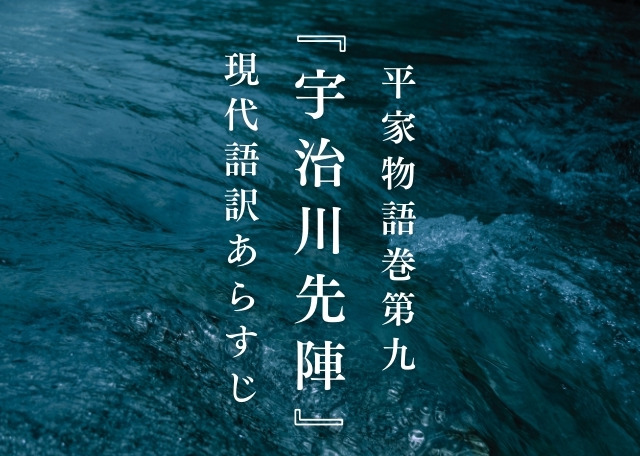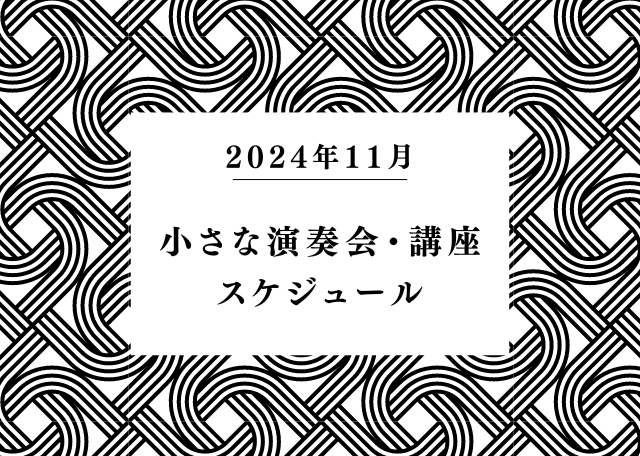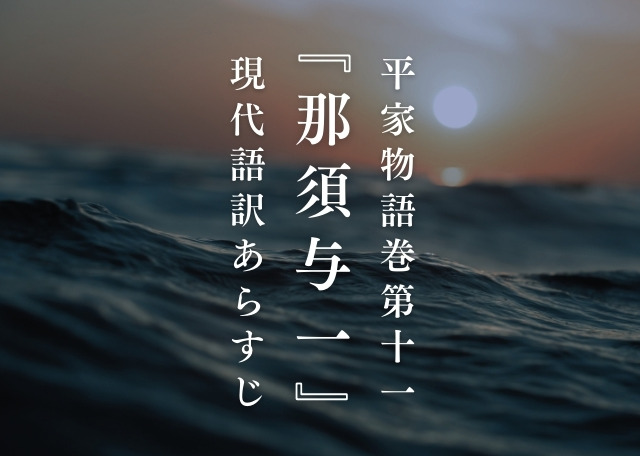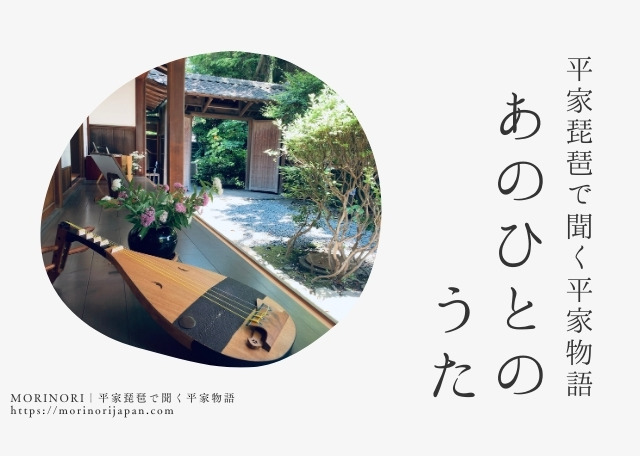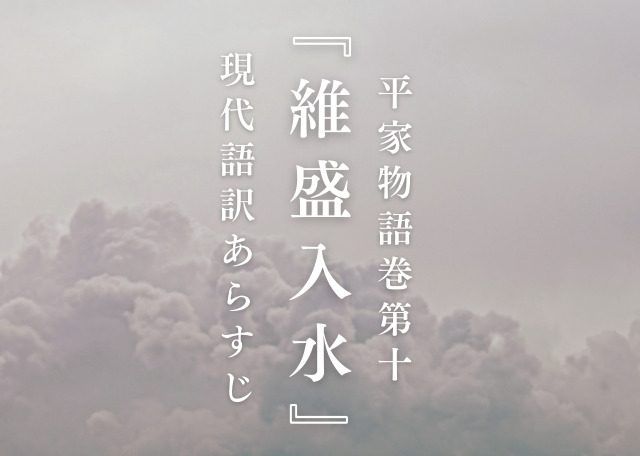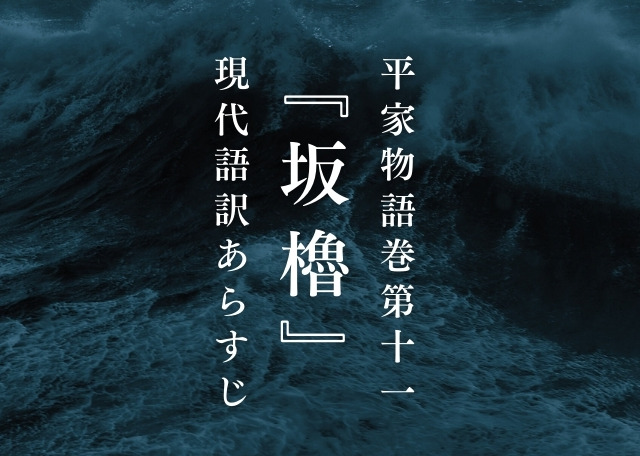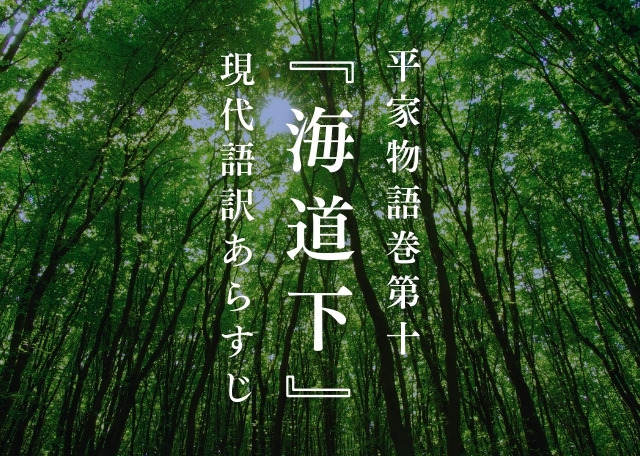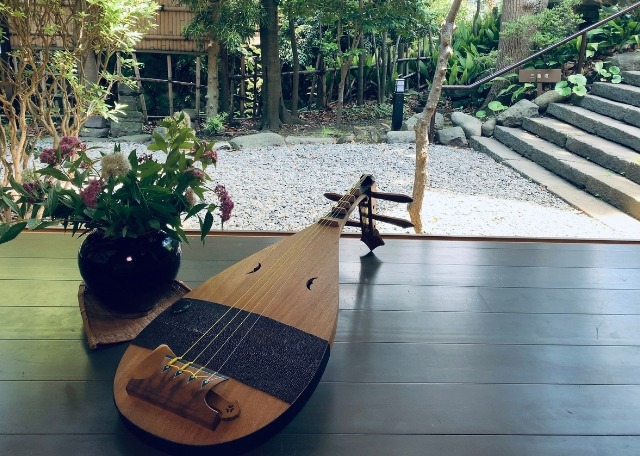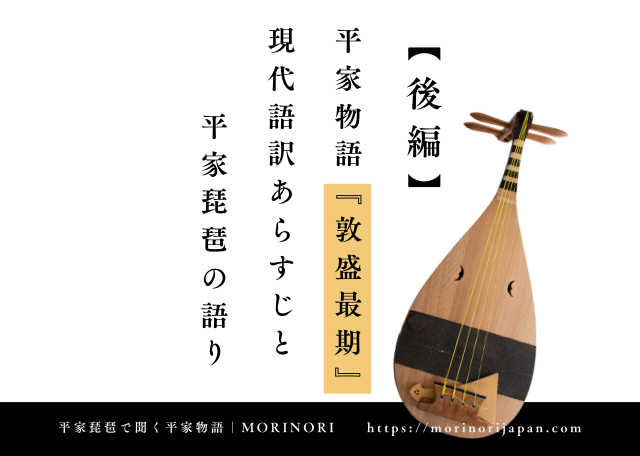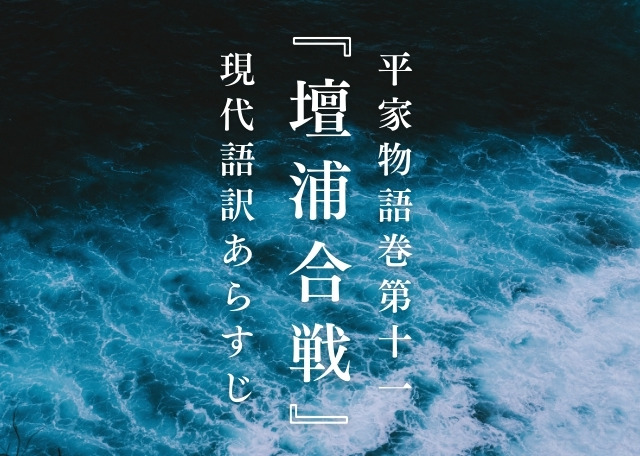Welcome to our site.
This is the website of MORINORI, which holds small Heikyoku (a performance of the Heike Monogatari accompanied by Heike biwa) concerts and lectures. On this page, we introduce a modern translation of the Heike Monogatari, Volume 9, “Nidonokake”. It’s not very good, but please take a look if you like.
▼For first-time visitors
https://morinorijapan.com/en/welcome
▼Program introduction
https://morinorijapan.com/en/performance-lineup
▼Listen to Heikyoku
https://morinorijapan.com/en/watch-the-sound/
▼Click here for a list of modern translations of the Tale of the Heike
The Tale of the Heike is performed at concerts and lectures, etc., in modern Japanese translation.
https://morinorijapan.com/en/category/tale-of-the-heike-en/
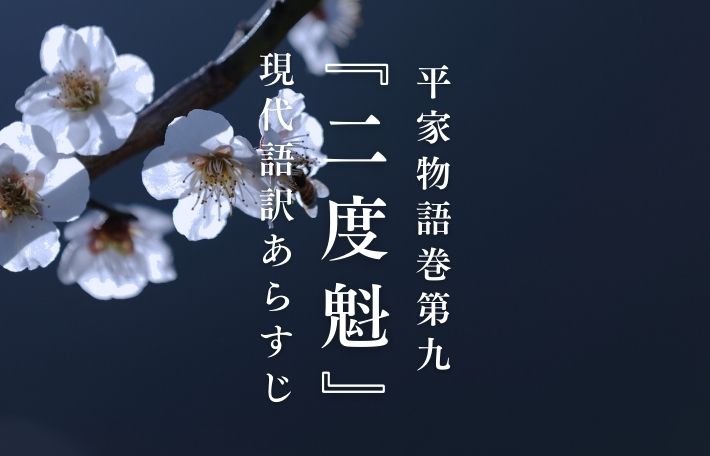
A simple summary of the Tale of the Heike, Volume 9, “Nidonokake”
While Narita Goro and Doi Jiro Sanehira were leading 7,000 cavalry to attack Ikuta Forest, the brothers Kawahara Taro and Kawahara Jiro of Musashi Province made up their minds to fight for glory themselves and charged into the castle together. The Kawahara brothers fought bravely as expert archers, but were defeated by the Manabe brothers of Bichu Province. When Kajiwara no Heizo Kagetoki learned of the fate of the Kawahara brothers, he lamented the party’s lack of foresight, but also saw this as an opportunity to attack, and raised a battle cry as he led his army of 50,000 cavalrymen in a simultaneous attack. As the second son, Heiji Kagetaka, had ridden ahead of the main force, Kagetoki followed him. When he returned from the battle, he realized that his eldest son, Kagetoki, was nowhere to be seen. Kagetoki raised his name and rushed back into the enemy camp, fighting without regard for his own safety as he searched for Kagetoki. Eventually, he found Kagetoki fighting bravely despite being surrounded by five enemies, and he rushed over to help him defeat the enemy and leave the battlefield.
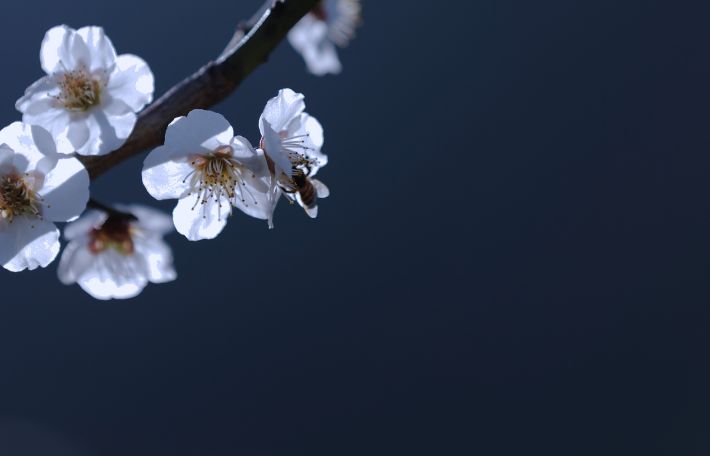
The Tale of the Heike, Volume 9, “Nidonokake” – Full modern translation
*This is a modern translation of the text taken from the Heikyoku score “Nidonokake”.
Now, Narita Goro appeared, and Doi Jiro Sanehira also led 7,000 or so cavalry, raising various banners and shouting as they attacked. The large army of the Minamoto clan, numbering over 50,000 cavalry, was solidly positioned in front of Ikuta Forest. Among them were two brothers, Kawahara Taro and Kawahara Jiro, who were residents of Musashi Province. Kawara Taro called his younger brother Jiro to him and said, “Daimyo do not fight themselves, but gain honor through the military exploits of their retainers. We cannot achieve our true desire unless we fight ourselves. It is worrisome to wait without firing an arrow in front of the enemy. I will sneak into the castle and take my revenge with a single arrow. You stay behind and bear witness to what happens.” Jiro, in tears, replied, “How frustrating! It’s frustrating to have two brothers, with the older one killed and the younger one left behind. Rather than being killed separately, let’s die together.” He then called his retainers to him and told them to convey his final message to his wife and child, and without mounting his horse, he entered the castle, wearing sandals and using his bow as a walking stick, crossing the reverse palisade of Ikuta Forest.
In the starlight, with the decorations on their armor unclear, Taro Kawahara announced in a loud voice, “I am Taro Kawahara, a resident of Musashi Province, and I am the leader of the army. When the people inside the castle heard this, they felt that there was no one more fearsome than the samurai from the eastern provinces, and they wondered what the two brothers were planning to do by charging into the midst of such a large group of people. No one tried to attack them, and they were simply left to their own devices.
The Kawahara brothers were expert archers, so they continued to shoot arrow after arrow. Seeing their fierce fighting, the people inside the castle realized that it would be impossible to deal with them, and they were just about to call out to have them killed when the brothers Manabe Shiro and Goro, famous archers from the western provinces and residents of Bitchu Province, appeared. The elder brother, Shiro, was at Ichinotani, and the younger brother, Goro, was at Ikuta-mori, but when they saw the Kawahara brothers fighting so bravely, they took careful aim and released their arrows. The arrow pierced the breastplate of Kawahara Taro, and he nearly fell, clutching at the bow. His younger brother Jiro ran over to help him, and tried to carry him over the reverse palisade at Ikuta-mori on his shoulders, but the second arrow fired by Manabe Goro pierced the grass skirt of Jiro’s armor, and the two brothers fell to the ground. Manabe’s retainers took the brothers’ heads and took them to the Lord Tomomori, the general of the army, who said, “They are splendid soldiers. They are truly soldiers who can fight a thousand. I wish I could have saved their lives.”
After that, Kawahara’s followers ran up and shouted, “Lord Kawahara and his brothers were the first to rush into the castle and were killed.” Hearing this, Kajiwara no Heizo Kagetoki cried out, “This is a disgrace for my party to have allowed the Kawahara brothers to be killed. But this is a good opportunity, let’s attack!” In response, the 50,000 soldiers also raised a battle cry at once.
Kagetoki first sent out the foot soldiers to remove the reverse barricades in the Ikuta Forest, and then led 500 or so cavalrymen himself, shouting as he rode. His second son, Taira no Kagetaka, tried to rush ahead too quickly, so Kagetoki told him, “The general has said that there is no reward for those who charge ahead without waiting for the rearguard to catch up.” Kagetaka paused for a moment, but then he said, “Once a samurai has drawn his bow, how can he put it back?” and he charged off again.
When Kagetoki saw this, he said, “Don’t let them kill Heiji, don’t let them kill Kagetaka, keep going,” and he, his father Kagetoki, his older brother Genta, and Saburo all followed. Kajiwara’s army of over 500 cavalrymen charged into the enemy camp, and after running around in all directions and defeating the enemy, when they returned, Genta’s figure was nowhere to be seen.
When Kagetoki asked his retainers, “Where is Genta?”, they replied, “He was killed because he went too far ahead, and we can’t see him.” Hearing this, Kajiwara wept, “I am leading the army forward for my child. If Genta has been killed, what is the point of Kagetoki living? Give him back,” and he returned to the battlefield.
After that, Kajiwara stood up, bracing himself with his stirrups, and shouted at the top of his voice, “Long ago, when Hachiman attacked the Senboku Kanazawa Castle in Dewa Province in the War of the Three Years, he ran straight ahead, calling out that he was sixteen years old, and while being hit by an arrow on his helmet, he shot back at the enemy and took his head, leaving his name in history. He shouted, “Anyone who thinks they can take me on, come on in!
Hearing this, the people inside the castle shouted, “The man who just introduced himself is a famous soldier in the eastern provinces. Don’t let him escape, kill him!” and they advanced to surround Kajiwara. Kajiwara, without thinking of himself, was fighting while searching for his son Genta, and as expected, Genta had been shot in the horse and was now on foot, fighting desperately. With a high bank behind him and his retainers on either side, he was surrounded by five enemies, but he fought on, not looking aside and sparing no effort, in his final battle.
Kajiwara saw this and was delighted that Genta had not yet been killed, so he jumped off his horse in a hurry. Then he called out, “Genta, Kagetoki is here. Even if we die together, don’t turn our backs on the enemy,” he called out, and father and son worked together to defeat three of the five enemies, seriously injuring the remaining two. Then, ‘Those who use bows and arrows must strike when the time is right, whether attacking or retreating. Come on, Genta, let’s go,’ and he escaped the scene. This is what Kajiwara meant when he said he would run twice.
▼Click here for a list of modern translations of the Tale of the Heike
*The Tale of the Heike is performed at concerts and lectures, etc., in modern Japanese translation.
https://morinorijapan.com/category/tale-of-the-heike/
Thank you for reading this far.
I hope to see you somewhere someday.

